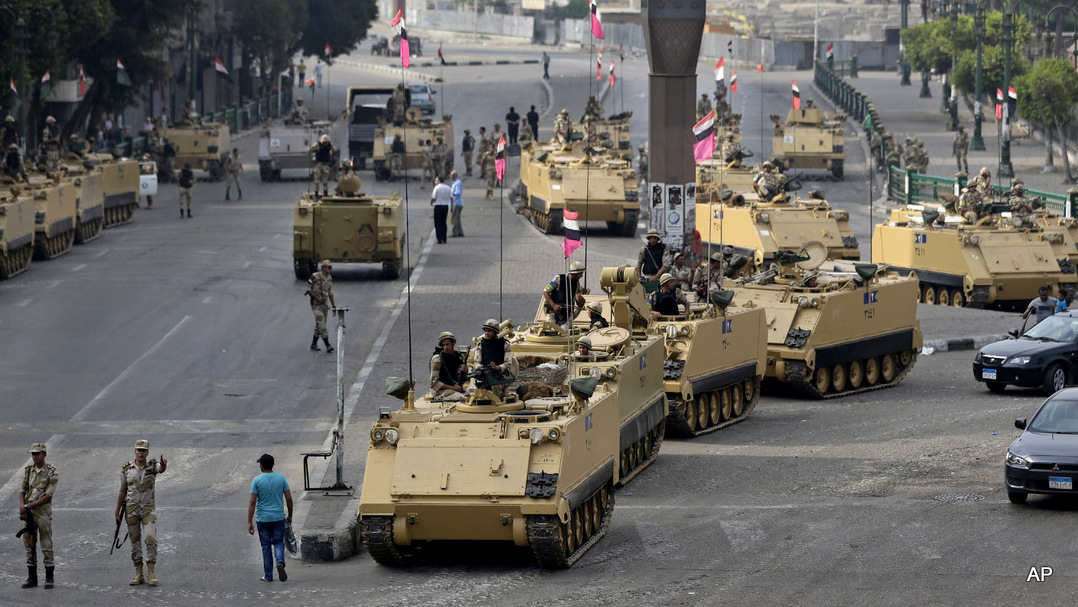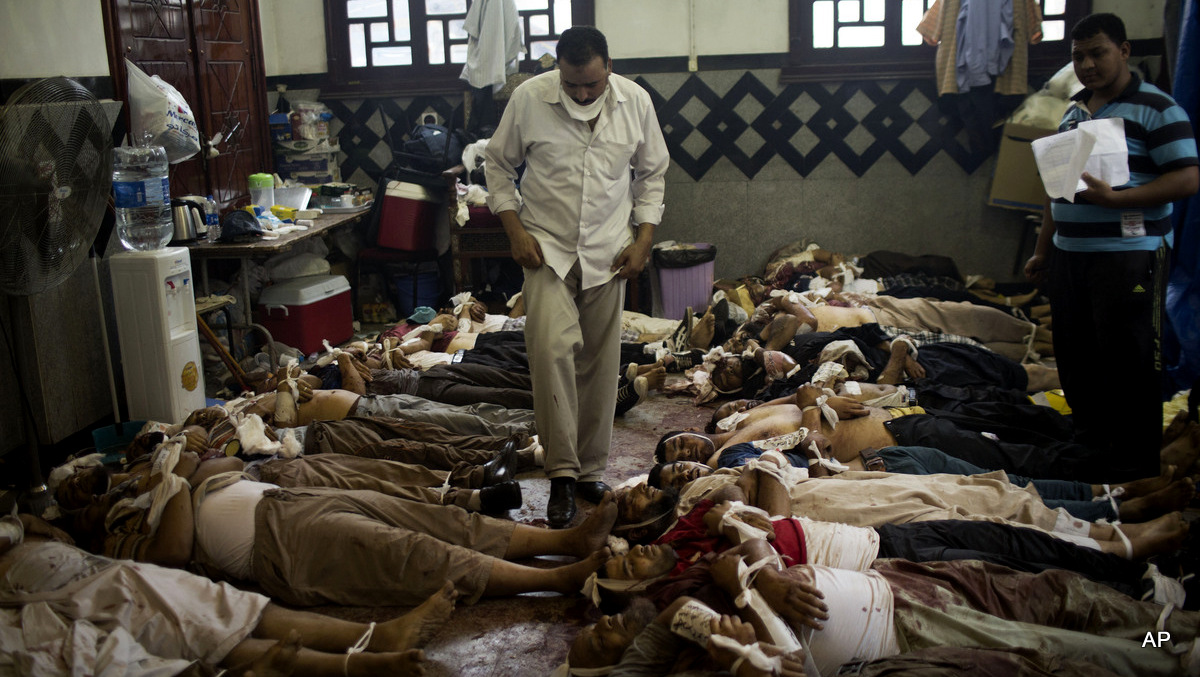3 Years After Brutal Rabaa Al-Adaweya Square Massacre, US Still Funding El-Sissi Dictatorship In Egypt
At least 817 supporters of ousted Egyptian President Mohammed Morsi
died in the initial attack, and disappearances and crackdowns on civil
liberties have become routine in the years since the 2013 massacre.

At least 817 people died in the Aug. 14, 2013 attack on Rabaah Al-Adawiya Square, where protesters — mostly supporters of the Muslim Brotherhood — had gathered after the coup.
For the survivors and their families, justice remains a far off dream today.
official MintPress sponsor
On Monday, Sarah Leah Whitson, Middle East and North Africa director at Human Rights Watch, issued a new demand for justice in the mass killing, including compensation for survivors and victims’ families. She wrote:“If President Abdel Fattah al-Sisi’s government hopes to have any credibility with the thousands of Egyptians who have suffered over the past three years, it should ensure a serious accounting for these grave crimes.”
The sit-in was organized in opposition to the July 2013 coup which replaced the democratically-elected Morsi government with one led by Gen. Abdel-Fattah el-Sissi, who led the Egyptian military under the previous dictator, Hosni Mubarak.
Many estimates suggest the death toll could be far higher than 817. An HRW report issued in August 2014 found that at least 1,150 protesters died in July and August, with at least 1,000 of those deaths occurring as a result of the Rabaah Al-Adawiya Square massacre.

“While there is also evidence that some protesters used firearms during several of these demonstrations, Human Rights Watch was able to confirm their use in only a few instances, which do not justify the grossly disproportionate and premeditated lethal attacks on overwhelmingly peaceful protesters.”
On the one-year anniversary of the massacre, Democracy Now! correspondent Sharif Abdel Kouddous, an experienced combat journalist, called the killings “the most concentrated violence that I have witnessed as a journalist, a very difficult day.”
He continued, recalling hours of slaughter:
“There was the sound of machine-gun fire everywhere. There was tear gas wafting in the sky. There were snipers on rooftops, people being shot while trying to run out of the square. Inside the medical facility inside Rabaa was a scene of mass grief and mass death. There was bodies being brought in almost every minute, people shot in the head and the chest. The wounded were being brought in. It was extremely hot, because the windows were closed to prevent the tear gas from coming in. The floor was almost slippery with blood.”
Watch “Worse Than Tiananmen? 1st Anniversary of Egyptian Army Killings of 800+ Anti-Coup Protesters” (2014) from Democracy Now!
Despite the abrupt transfer of power and violent suppression of the opposition, the White House was reluctant to call the takeover a coup, and the United States continues to support the el-Sissi government, despite token reductions in military aid after the coup. At $1.3 billion annually, Egypt is second only to Israel in terms of U.S. military aid.
Aswat Masriya, an Egyptian news service established by Thomas Reuters Foundation, reported on Sunday that, “The majority of Muslim Brotherhood leaders and renowned figures including the Muslim Brotherhood’s Supreme Guide Mohamed Badie and the group’s second in command businessman Khairat al-Shater have been arrested since the ouster of Mursi [Morsi].”
That report also noted that the remnants of the Brotherhood marked the anniversary of the massacre by taking to Facebook to declare it “will not compromise Mursi’s legitimacy” and remains defiant of the el-Sissi government’s ban on their movement.
Watch “Egypt’s Disappeared” from Amnesty International:
Crackdowns on political opponents continued, seemingly intensifying in the lead up to the anniversary of the massacre. Last month, Amnesty International issued a new report documenting how “Egypt’s National Security Agency (NSA) is abducting, torturing and forcibly disappearing people in an effort to intimidate opponents and wipe out peaceful dissent.”
When police raided the Egyptian journalists’ union in May, hundreds gathered outside in protest and demanded the resignation of Interior Minister Magdy Abdel-Ghaffar, Al-Jazeera reported
As HRW’s Sarah Leah Whitson noted, the massacre set the tone for the el-Sissi government, and the continued crackdowns on political opponents cast doubt on the government’s legitimacy.
She added: “The mass killings of August 14, 2013, remain a dark stain on Egypt’s record that no amount of spin from the government or its allies will ever wash away.”
Source: http://www.mintpressnews.com/3-years-brutal-rabaa-al-adaweya-square-massacre-us-still-funding-el-sissi-dictatorship-egypt/219557/